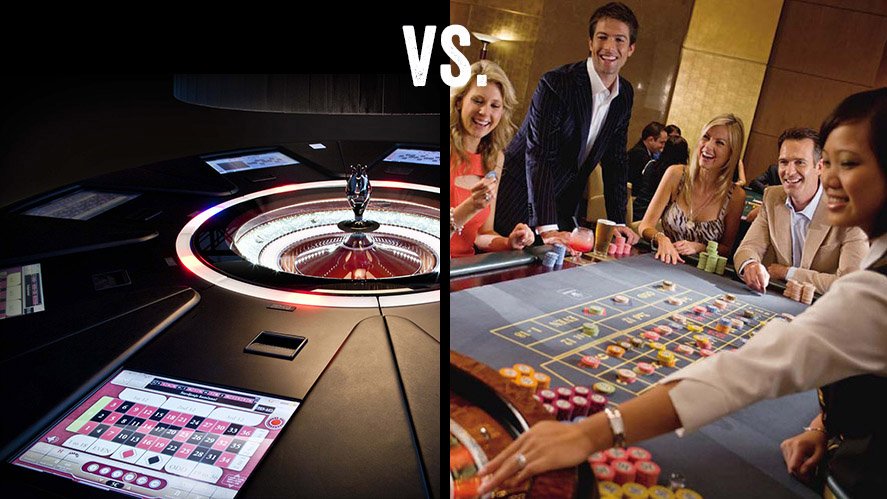

Feb
03
2016
Electronic vs Live Table Games
By Travel Tunica on Wednesday February 3, 2016
activities, betting, betting-blackjack, betting-strategy, casino, casino-floor, casino-games, casinos, craps, dealer, dice, gambling, gaming, gaming-in-tunica, gaming-strategy, gaming-tips, house-edge, how-to-win, poker

Table games players have consistently shown a preference for live action. They like to play with real cards and dice and with human dealers.
Still, there has been an increasing acceptance of electronic table games, especially in roulette. Touch screens for electronic betting speed play as wagers are settled automatically, with no mistakes. There’s no down time waiting for dealers to pay winners and collect chips from losing bets.
Electronic table games also are used to offer lower minimum bets. On a busy weekend night, a player who wants to bet $5 a hand might not find a spot at the live tables where casinos pay full crews, but might be able to play at an electronic game.
The odds are set on electronic table games to mimic the live games. An electronic double-zero roulette game with standard payoffs on winning bets has the same 5.26 percent house edge on most wagers as on live games.
However, the electronic elements raise the same questions among players as slot players have been asking for decades. One player asked recently, “If one player wins big does the machine compensate by making it harder for the others to win until the casino gets its hold percentage for the day?”
The answer is that just as on live tables, the odds are the same on every play, one winner’s luck doesn’t make things any harder on other players. The casino can be confident that in the long run, the odds will lead to an expected percentage. Casino operators understand random fluctuations and know they’re not going to hit the expected percentage every day, but the long grind of the house edge is in their favor.
The random number generator that determines where a wheel stops, which cards are dealt ore what numbers the dice show on electronic table games doesn’t know whether anybody wins or loses. Its only function is to generate random numbers that then are mapped onto potential results. The RNG does not get feedback over whether anybody has won or lost.
